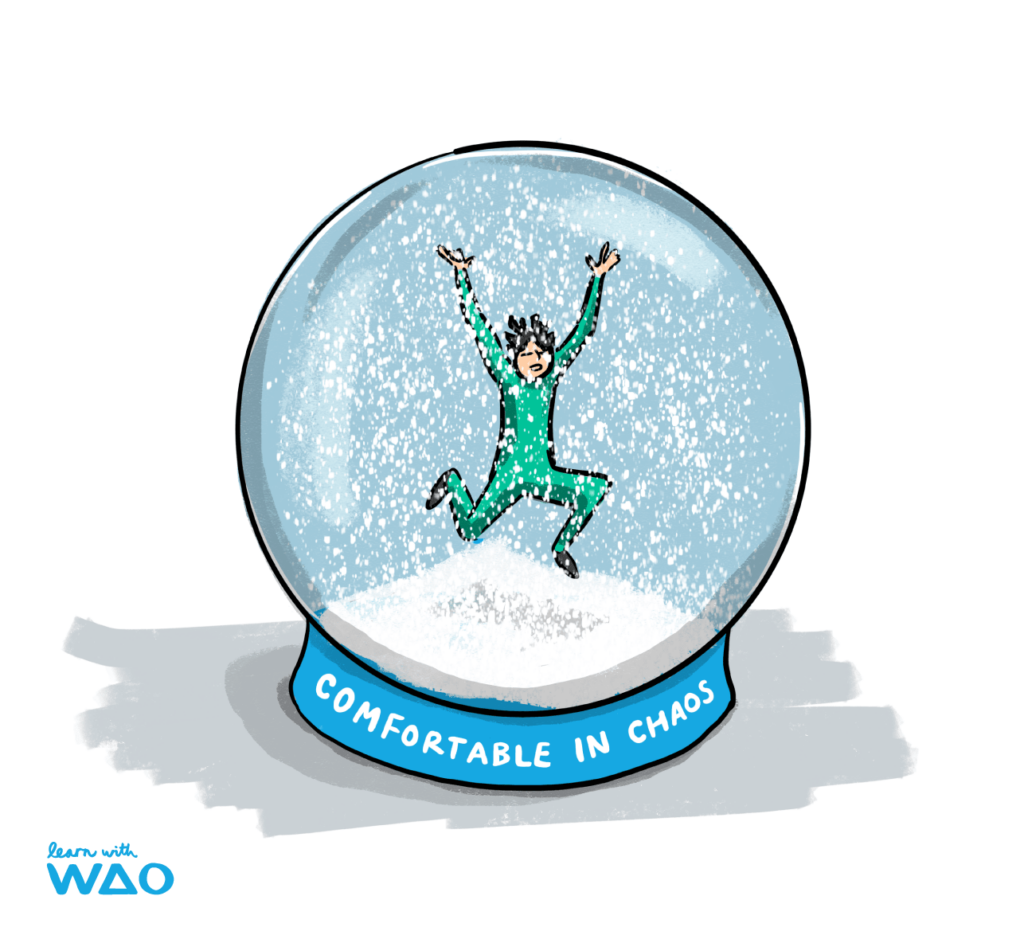TB871: Engaging with unknowns
Note: this is a post reflecting on one of the modules of my MSc in Systems Thinking in Practice. You can see all of the related posts in this category.
After completing readings and activities for the ‘Tools’ stream, we now move into the ‘People’ stream. The first video I watched as part of this was an introductory clip from the BBC TV series Blue Planet 2, narrated by Sir David Attenborough.
The being analogy made was between the cold, dark depths of the polar seas, which we might expect to be barren, and our own personal ‘unknowns’. In both cases, although we previously did not know much about them, they are teeming with life.
In terms of my own unknowns (Activity P1.2) if I break it down, I guess it looks something like this:
Ideally, given more time, I would have linked some of these together a bit more. I have a tendency towards looking at the negatives, but there are plenty of potential positives around science and health breakthroughs, for example.
Moving on to Activity P1.3 we’re asked to “examine the feelings that arise when you consciously attend to your world of unknowns” (Open University, 2020). It’s an interesting one, because I’m somewhat comfortable in ambiguity and ‘chaos’ as the wonderful image from my friend Bryan Mathers shows below, the unknowns which are likely to hit me in the second half of my life seem somewhat daunting

For example, I became very aware moving to this new house last month that this would be the place in which both of my kids left home to go to university, and the house in which I will live when I lose both my parents. This made me quite emotional.
But these are known knowns and known unknowns. The ‘unknown unknowns’ are obviously harder to deal with. I live with two chronic health conditions (asthma and migraines) which are well-controlled but could get worse. Someone I know had a cancer diagnosis recently out of the blue. Who knows what might happen to my friends, family, and colleagues?
Although every generation seems to think they live in the midst of unprecedented change, there is a lot of objective evidence to point towards in order to suggest that we’re currently experiencing a lot. For example, even if we just look at the developments in AI, which have come after a major pandemic, after all of the political turmoil, after a global financial crash. Paying appropriate attention to all of this and trying to make sense of it, both rationally and emotionally, can be overwhelming.
On top of this, trying to take an ethical stance is complicated. For example, I made a commitment to stop flying, which my family then talked me out of as they argued persuasively that this would mean that we didn’t get to see some things before they disappeared. What will happen to supply chains? Will my skills continue to be in demand? Will where I live continue to be habitable?
I wouldn’t say these questions keep me up at night, but they’re always there in the background. As someone who, by nature, has a tendency towards general background anxiety, it’s no wonder that it would be somewhat of a stretch to describe me as ‘happy-go-lucky’.
References
- The Open University (2020) ‘P1.1 The knower and the unknowns, TB872 Block 1 Systems and Strategy [Online]. Available at https://learn2.open.ac.uk/mod/oucontent/view.php?id=2261478§ion=2.1.1 (Accessed 19 May 2024).

